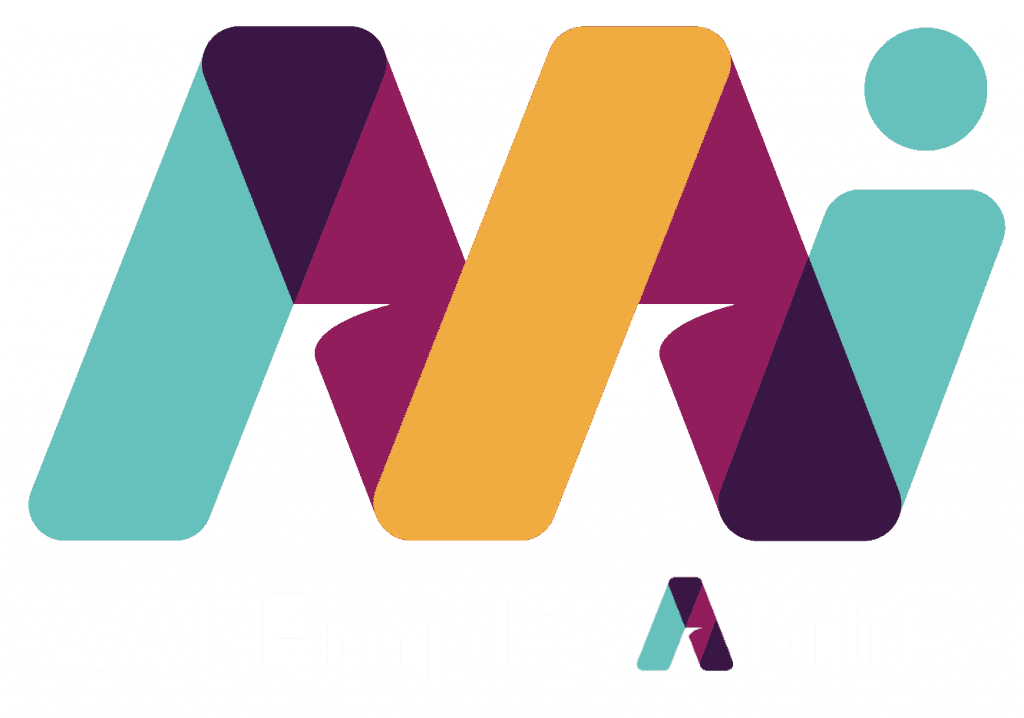AAI EmployAbility’s CEO Joy Lewis reflects on the business lessons the pandemic has taught, and what opportunities there are for addressing them in this ever-changing landscape. An abridged version was published in the Scotsman on 6 March 2021. Here’s the full content version.

It’s no secret that 2020 turned the workplace on its head. While most of us have found ways to keep things moving and stay connected, the jury is still out on what the workplace will look like as we recover from COVID-19.
While it was initially suggested that the pandemic would be a ‘great equaliser’, reporting has shown quite the opposite, and that the socio-economic inequalities that existed previously have only been exacerbated.
As the good news of vaccines and various employment-focused initiatives roll out across the UK, we come to a fork in the road. This is a time to either revert to our old ways or to make changes in our society, rectifying the issues that existed pre-pandemic, such as workplace inequality. I’d like to consider some of the potential positives of a post-pandemic employment landscape, as well as some social lessons we’d be remiss to forget as we look to rebuild the economy.
Fully embracing remote work
In March 2020, nearly every business, regardless of size or sector, was forced to adopt remote working. While many people certainly still struggle with balancing life and work at home, on the whole this can be seen as a huge positive going forward. Numerous studies have found employees are in favour of remote work, with no dip in productivity.
Staff enjoy the autonomy and the opportunity to shape how they work. Technology has helped to keep us connected and by now those companies still hiring have navigated this and are onboarding virtually.
In recruiting, remote working vastly expands available talent pools, allowing for greater access to candidates from underrepresented groups, negating lazy excuses that the talent ‘isn’t there.’ It also offers greater opportunities for people with disabilities to work how they want to, with one disabled candidate I spoke to recently telling me how much more energy they have now they can work from home.
As we consider how a mix of office and home-based work will manifest itself going forward, we must take a remote-first approach when looking for talent, considering how to best integrate them with other team members with regular check-ins, reminders of company values and HR initiatives that help people to feel connected and included.
I’m a huge advocate of this approach, having founded and grown AAI EmployAbility into a sustainable business with a fully remote team over the last 11 years.
Gender equality and embracing returners
A recent study showed that women are 1.8 times more vulnerable to redundancy caused by the pandemic than men and, while women make up 39 per cent of the global workforce, 54 per cent of job losses have been among women.
In this demographic, businesses must consider those returning to work after a career break; allowing flexible working around childcare and home life, and not underestimating what this ‘woman returner’ audience has to offer.
Transferable skills like time and conflict management, and more intrinsic qualities like maturity, loyalty and organisational skills, are all things employers would be missing out on by neglecting this talented audience.
Getting serious about racial equality
Since companies around the world pledged their support for Black Lives Matter last summer, jobseekers, employees, and customers have been looking to see how those promises will translate into action.
The employment rate for minority ethnic groups in Scotland is 15% lower than that of the white population, and significantly worse for minority ethnic women, whose employment rate is 20% lower than white women.
Racial diversity is not a ‘nice to have’ initiative, but a business-critical imperative, and one that employment can lead on.
One of the things that constantly comes up with our minority ethnic candidates is that employers often don’t recognise qualifications from overseas. Is it fear of the unknown or a reluctance to change what they’ve always done? It frustrates me that employers are missing out on skills they need, skills they can test for, whilst dismissing an application because of a ‘foreign university’.
‘Tidy up your own house before inviting people over’, said one of my colleagues recently; suggesting that businesses think about their recruitment practices and workplace culture before they make a push towards what could be deemed tokenistic diversity hiring.
In summary
With the global wave of compassion we all felt at the height of the pandemic, one of the sentiments I hope we can hang on to in business is this idea of trying to really see and value each other for our life experiences.
By considering how ‘equality of opportunity’ can enrich our teams, and having a more open-minded approach to how we hire and how we work, we can create environments where innovation, resilience and adaptability can come from welcoming different voices, values, experiences and approaches to work – imperative when navigating whatever the next year has in store for us.

